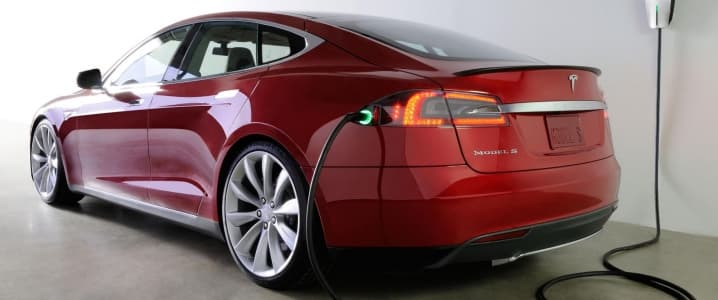While oil and gasoline prices have traditionally determined the fate of electrified vehicle sales, plug-in vehicles are seeing other forces shaping global markets.
When oil prices plunged in 2014, hybrid vehicles took a hit along with their residual values in several global markets. Plug-in electrified vehicles – battery electric and plug-in hybrid – saw similar trends emerging at first. However, PEVs have seen unit sales rise significantly in the U.S., Europe, and China during the past two years – as gasoline prices have stayed down.
It appears that other market dynamics are influencing PEV sales now more than oil and fuel pump prices.
Government-backed China Association of Automobile Manufacturers (CAAM) has projected 800,000 “new energy vehicles” (PEVs) will be sold this year in China – a 58 percent increase over 2016. Last year, there were about 507,000 new energy vehicles sold, growing by more than 50 percent over 2015.
Generous government subsidies have been considered to be the driving force by market analysts. These incentives have been shaped by frustration with air pollution in China’s fast-growing cities and a government policy incentivizing domestic automakers to play a leading role in global PEV sales and technology; along with rebates for consumers to find more affordable transport options.
Gasoline prices in China took a hit in early 2013 and saw another drop during the second half of 2014. During that time, China became the top selling global PEV market, surpassing the U.S for the first time.

(Click to enlarge) Related: Iraq Plans For Enormous Boost To Refining Capacity
The U.S. is seeing PEV sales increase gradually as fuel prices have stayed down since mid-2014. While they still make for a very small share of new vehicle sales – about 1 percent – PEV sales are seeing a steady increase.
The Electric Drive Transportation Association reports that PEV sales increased from 114,022 vehicles in the U.S. during 2015 to 157,112 in 2016.
Hybrid vehicle sales have been hit by fuel prices falling in the U.S. and other markets; though there may be some reprieve in Europe as hybrids become a viable option over diesel cars in the wake of the Volkswagen diesel emissions cheating scandal.
Europe has seen a similar dynamic, after gasoline and diesel prices plunged in 2014.
PEVs doubled in market share over 2014, with more than 1.2 percent share in 2015 and 2016, according to the European Alternative Fuels Observatory.
Other factors, especially government subsidies, fleet sales, and fascination with new vehicle technologies, have shadowed over fuel pump prices.
China’s rapid growth in PEV sales is being driven by government incentives and competition for brand identity in vehicle segments. While many Chinese consumers enjoy a luxurious car reflecting their economic assets, other car shoppers are interested in affordable, smaller, clean cars they can navigate through crowded, polluted cities.
Fleet sales make for a larger chunk of new energy vehicle sales than would be expected. China’s new energy vehicle sales numbers include trucks and buses, and vehicle manufacturers are taking large orders for electric municipal buses and delivery vehicles.
Europe is seeing this transition led by European Union, national, and municipal policies. Paris and London are leading the way in restricting vehicle access to crowded streets and transitioning over to clean vehicles to clear polluted air. Related: Artificial Intelligence To Reveal The Biggest Secret In Oil
Automaker executives expect PEVs to increase in share in the next 10 years – to compete with Tesla, comply with more restrictive government emissions policies, and to prepare for changing consumer tastes. Their market studies see younger consumers less interested in owning cars, and more interested in sharing rides from Uber, Lyft, Zipcar, Car2Go, and are preferring electrified transportation.
Some executives and market analysts are expecting automakers and startups to roll out more PEV-only brands in the wake of success by Tesla and Chinese maker BYD. Daimler AG launched the EQ electric car brand in the fall, and is converting North American sales of Smart cars to electric only.
ADVERTISEMENT
Hydrogen fuel cell vehicles are also expected to play a part in the transition over to zero emission vehicles and adoption of new vehicle technologies.
While fuel cell vehicle sales have been very slight so far, auto executives see that changing. KPMG’s Global Automotive Executive Survey 2017 interviewed 1,000 senior auto executives, with 78-percent thinking that fuel cell electric vehicles “will be the golden bullet of electric mobility.”
The problem of setting up a user-friendly charging infrastructure for battery electric vehicles lead 62-percent of the surveyed executives to believe that BEVs will fail, KMPG said. For now, surveyed executives see battery electric and plug-in hybrid vehicles sales being a priority to face tightening emissions policies.
By Jon LeSage for Oilprice.com
More Top Reads From Oilprice.com
- Banking Giants Miss Out On Oil’s Biggest IPO
- Oil Prices Edge Higher Ahead Of Inventory Data
- U.S. Crude Inventories Reach Record High After EIA Reports Significant Build



















Interesting that the auto executives seem to think that FCEV's will outshine EV's in the future.